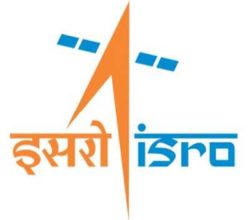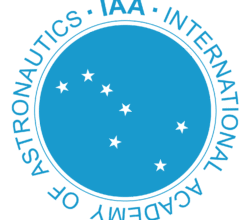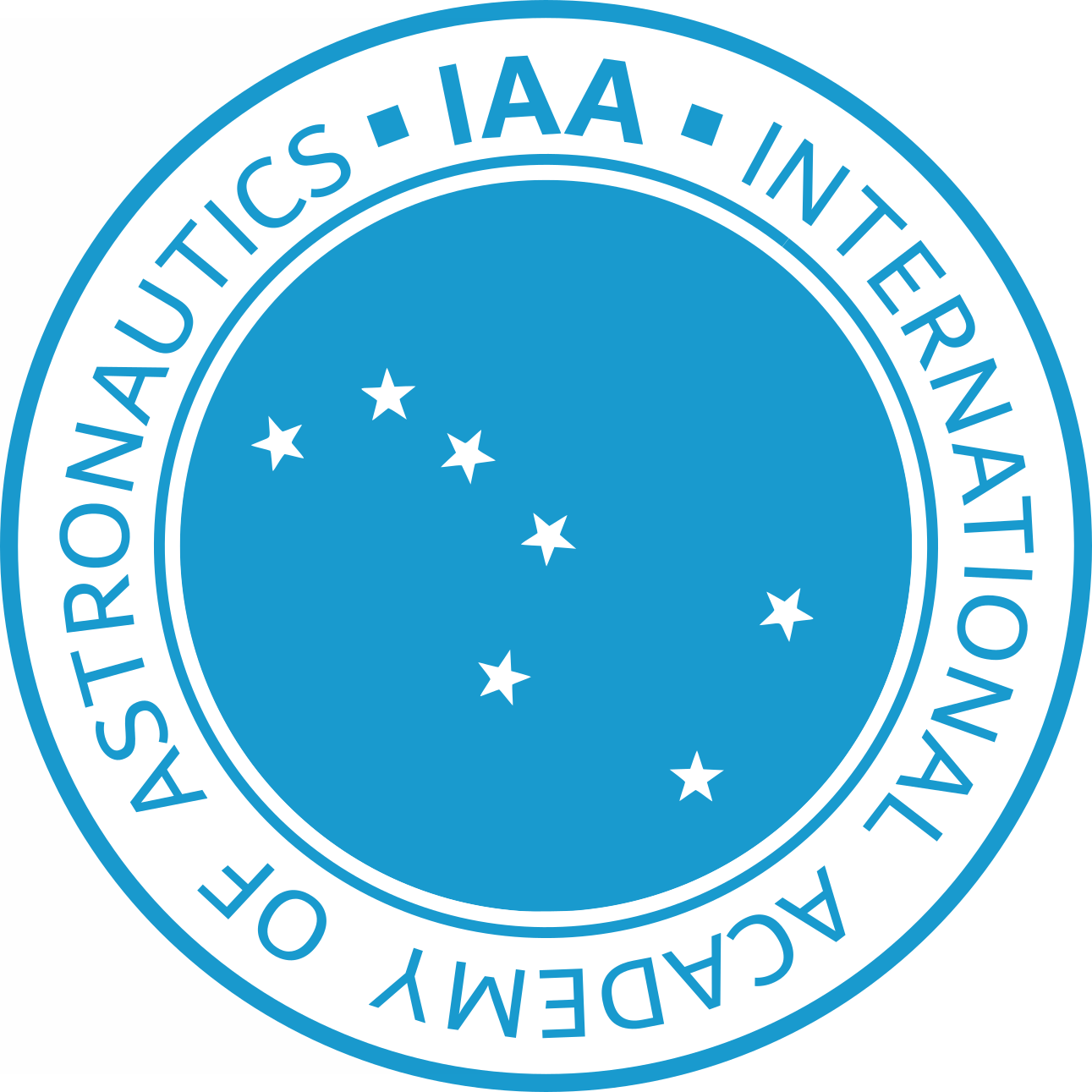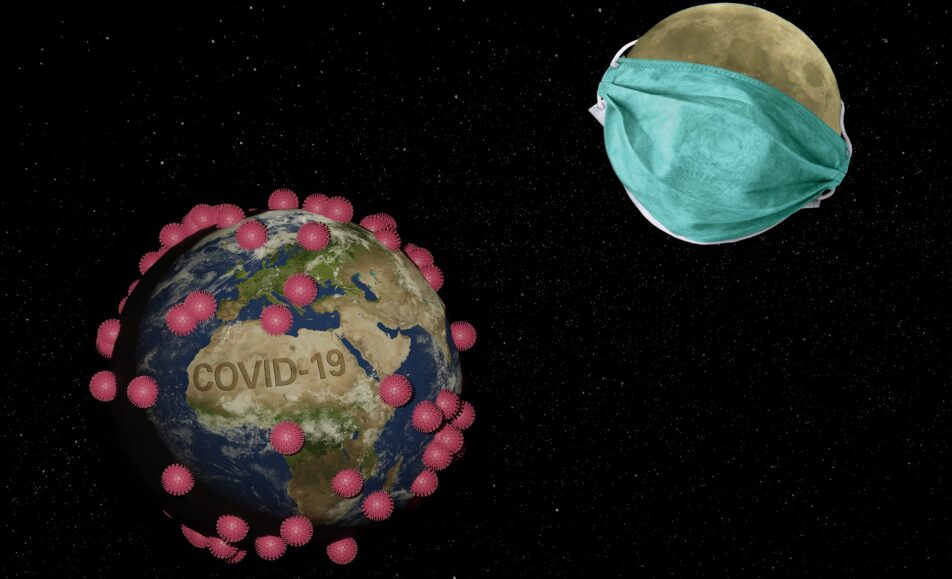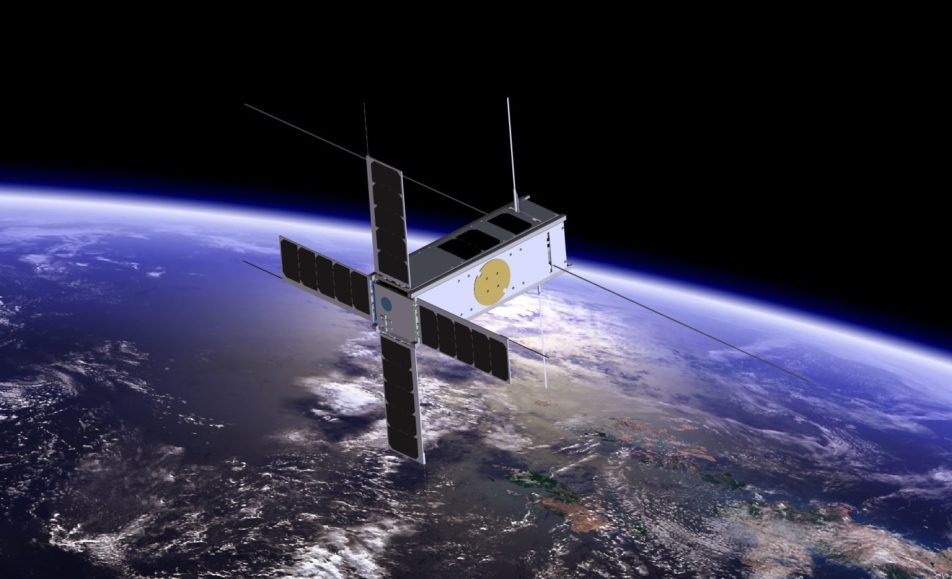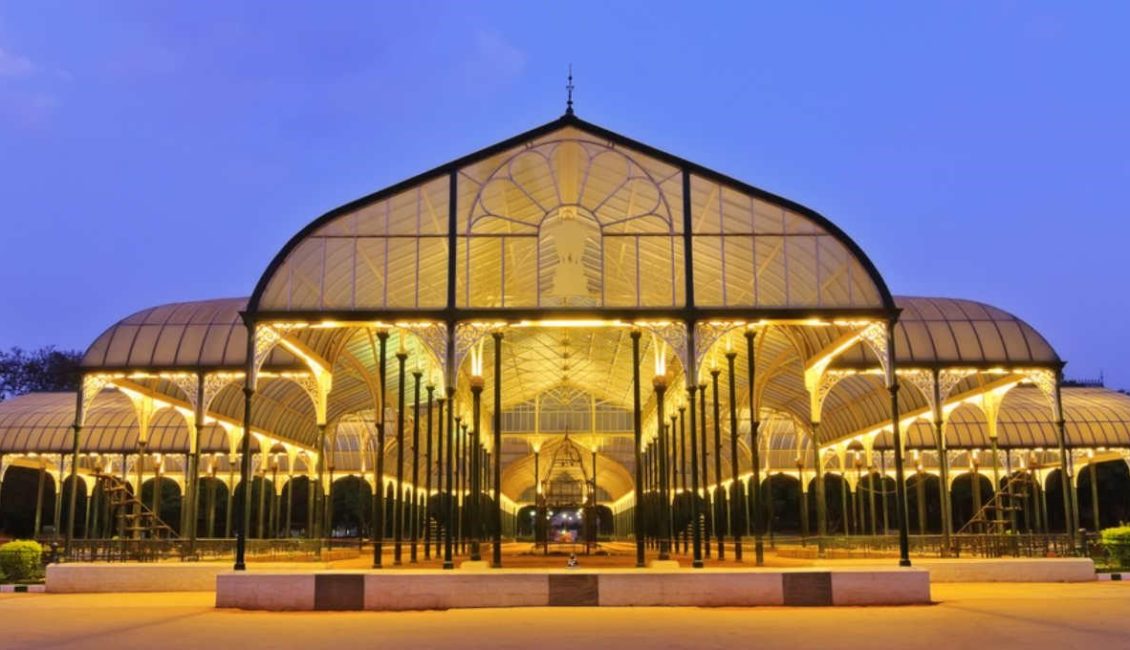
The Indian Space Research Organisation (ISRO), the International Academy of Astronautics (IAA) and the Astronautical Society of India (ASI) are pleased to invite you to save the date for the first IAA-ISRO-ASI Symposium on Human Spaceflight Programme to be held on January 22-24, 2020 in Bangalore, India.
Experts from all over the world will gather to discuss and exchange on the main theme of the conference: Human Spaceflight and Exploration – Present Challenges and Future Trends.
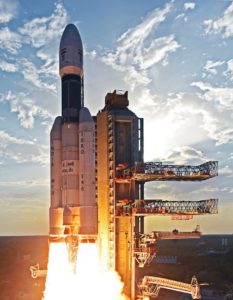
Technical sessions will be devoted to several topics like Human Spaceflight Challenges, Enabling technologies for human spaceflight – Present and Future, Ground systems for human spaceflight, Scientific and societal relevance of Human spaceflight, Policy aspects and Economics of Human Spaceflight.
The conference will also propose a Heads of Space Agencies Panel discussion, an Astronauts Panel discussion, a Gala dinner and a technical visit to ISRO facility.
Technical Session-1: Human Spaceflight Challenges
• Space Life science aspects
• Life Support System technologies
• Space hazard mitigation (Radiation/ Micro particle impact)
• Space habitats
• Crew selection and training
• Hygiene management
Technical Session-2: Enabling technologies for human spaceflight – Present and Future
• Enhancing Launch vehicle capabilities, safety, reliability etc.
• Technologies for long duration human space flight missions
• Space Robotics
• Deep Space Exploration Challenges
Technical Session-3: Ground systems for human spaceflight
• Crew training facilities
• Simulation facilities
• Mission control
• Launch complex
• Crew recovery
Technical Session-4: Scientific and societal relevance of Human spaceflight
• Microgravity experiments carried out by human in space
• Spin-offs
Technical Session-5: Policy aspects and Economics of Human Spaceflight
• Future multilateral exploration goals and strategies
• Commercial aspects of human spaceflight
• Legal aspects of human spaceflight
• Space Tourism
• Outreach activities in human spaceflight programme
Preliminary Program
Day -1 January 22, 2020 (Wednesday)
|
|
Inaugural Ceremony(09:45 – 11:00) 75 minutes (HALL-A) |
|
Time, hrs |
Activities |
| 9:45 | Curtain raiser video |
| 9:48 | Escorting Dignitaries to dais |
| 9:50 | Invocation |
| 9:52 | Welcome Address by LOC Chairman- Mr. P.Kunhikrishnan |
| 10:02 | Lighting the lamp |
| 10:05 | Address by IPC Co-Chair – Dr. BN Suresh |
| 10:12 | Address by IPC Co-Chair –Dr. JM Astorg |
| 10:19 | Address by IAA Secretary General – Dr. JM.Contant |
| 10:26 | Presidential Address by Chairman, ISRO – Dr. K.Sivan |
| 10:36 | Video Message from Honourable Prime Minister of India |
| 10:41 | Inaugural Address by Chief Guest – Prof. K. Vijay Raghavan |
| 10:51 | Release of Abstract Volume |
| 10:56 | Vote of thanks: LOC Member Secretary |
| 10:59 | National Anthem |
Tea Break (11:00 -11:30) |
|
Heads of Agencies Panel(11:30 – 13:00) 90 minutes (HALL-A) |
|
Time, hrs |
Activities |
| Moderator : Dr. B N Suresh, Honorary Distinguished Professor, ISRO / IPC Co-Chair | |
| 11:30 – 11:31 | Introduction and Inviting the Panelists |
| Panelists: | |
|
11:32 – 12:30 |
Mr. Thomas Reiter, ESA’s Interagency Coordinator, ESA |
| Dr. Jean Marc Astorg, Director CNES, France | |
| Dr K. Sivan, Chairman ISRO, India | |
| Mr. Giovanni Valentini, ISS Utilization Manager, ASI, Italy | |
| Mr. Shizuo Yamamoto, Senior Vice President & Dir. General, Human Spaceflight Technology Directorate, JAXA, Japan | |
| Mr. Marius-Ioan Piso, President and CEO, ROSA, Romania | |
| Mr. Alexander Bykov, Director, Department for manned spaceflight, ROSCOSMOS, Russia | |
| Mr. Joel Montalbano, Deputy Program Manager, ISS Program Office, Johnson Space Centre, NASA, USA | |
| 12:31 – 13:00 | · Moderator’s interaction with Panelist 15 min
· Answers to selected questions from audience 15 min |
Lunch (13.00 – 14.00) |
|
Technical Session-1 – Human Spaceflight Challenges(14:00 – 17:00) 150 minutes (HALL-A) |
|
| Time, hrs |
Activities |
| Session co-chairs:
Mr. Avinash Chander, Former Scientific Advisor to Defense Minister Mr. S.Somanath, Director Vikram Sarabhai Space Centre Rapporteur: Mr. Abhijeet Kibe, Prgramme Manager DHSP |
|
| 14:00 – 14:02 | Introduction of topic |
| 14:03 – 14:22 | Invited talk (20 mins)
Mr. Jean-Marc Astorg, CNES, FRANCE Topic: Panorama of past, current and future European launchers |
| 14:23 – 14:32 | Neurohormonal responses to oscillatory lower body negative pressure in healthy subjects – Singh Akanksha, India (1) |
| 14:33 – 14:42 | Neurological changes during human space flights – Ganapathy Krishnan, India (7) |
| 14:43 – 14:52 | Design and space exploration – crew capsule – Mehta Neel, India (11) |
| 14:53 – 15:02 | Celebrating 50 years of man’s landing on the Moon – Goswami Nandu, Austria (14) |
| 15:03 – 15:12 | Design simulation and parametric study of a low powered human metabolic simulator for testing of life support systems in human space program – Savit Anantaram, India (124) |
Tea Break (15:13 – 1540) |
|
| 15:41 – 15:50 | Emerging democratization of space exploration – La Regina Veronica, Italy (26) |
| 15:51– 16:00 | Model based optimal design of micro-channel reactor for CO2 removal in closed loop atmosphere revitalization system – Ganesh P, India (64) |
| 16:01 – 16:10 | Modelling of separation dynamics of multi body system – Rima Gosh, India (69) |
| 16:11 – 16:20 | Aerodynamic shaping of a crew escape system – using CFD – Kumar Saha Sanjoy, India (75) |
| 16:21 – 16:30 | Space radiation environment for Gaganyaan mission – Kinshuk Gupta, India (99) |
| 16:31 – 16:40 | Comparison of flow features for parallel and series radiators – Priyesh Kumar Jain, India (122) |
| 16:41 – 16:50 | Communication system design and blackout mitigation techniques for Gaganyaan – Rajesh Kumar Singh, India (171) |
| 16:51 – 17:00 | Wrap up |
Technical Session-2 – Enabling Technologies for Human Spaceflight – Present & Future(14:00 – 17:00) 150 minutes (HALL-B) |
|
| Time, hrs | Activities |
| Session co-chairs:
Dr. Bonnal Christophe, CNES Dr. V. Narayanan, Director, LPSC Rapporteur: Mr. Abhishek Jha, Programme Manager DHSP |
|
| 14:00 – 14:02 | Introduction of topic |
| 14:03 – 14:22 | Invited talk (20 mins)
Mr. Norimitsu Kamimori, Director of Management and Integration Department, Human Spaceflight Technology Directorate, JAXA, JAPAN.Topic: Key technologies for Japan’s future human spaceflight activity |
| 14:23 – 14:32 | Isometric handgrip exercise blunts DBP Baroreflex sensitivity during oscillatory lower body negative pressure in parasympathetic frequency band – Kumar Banodhe Gagan, India (6) |
| 14:33 – 14:42 | De-risking activities in-orbit: from LEO to the Moon, Mars and beyond – La Regina Veronica, Italy (25) |
| 14:43 – 14:52 | Reentry heat flux estimation and thermal protection system design of Gaganyaan crew module – Kumar Mayank, India (44) |
| 14:53 – 15:02 | Solar array deployment mechanisms for human rated missions – Sakthivel M, India (46) |
| 15:03 – 15:12 | CES solid motor design – Sreejith K, India (52) |
| Tea Break (15:13 – 15:40) | |
| 15:41 – 15:50 | Crew escape system – present and future trends – Raja Sekhar Reddy E, India (57) |
| 15:51 – 16:00 | Human access to space which missions for tomorrow? – Astorg Jean-Marc, France (60) |
| 16:01 – 16:10 | Human reliability analysis for liquid rocket engine assembly and integration of human rated launch vehicle – Padmanabhan P, India (62) |
| 16:11 – 16:20 | Ultra-fast imaging assisted space debris, meteoroids identification and impact avoidance using FPGA based on-board autonomy-image processing approach – Shwetank, India (66) |
| 16:21 – 16:30 | A conceptual study on on-orbit additive manufacturing and assembly – Gopalan Poofa, India (71) |
| 16:31 – 16:40 | Estimation of water landing loads on Gaganyaan crew module- Ramachandran Nirmal, India (72) |
| 16:41 – 16:50 | Challenges in the Gaganyaan Service Module Accommodation and configuration – Aras Kumar S, India (79) |
| 16:51 – 17:00 | Wrap up |
Industry Panel(17:00 – 18:00) 60 Minutes (HALL-A)Topic: “The present challenges and future trends of human space flight – Industry perspective” |
|
| Moderator: Mr. S. Somanath, Director Vikram Sarabhai Space Centre, ISRO
Rapporteur: Mr. D.Radhakrishnan, Executive Director, NSIL |
|
| 17:00 – 17:05 | Introduction and Inviting the Panelists |
| 17:05 – 17:45 | Panelists : |
| Dr. Valery K. Aksamentov, Director, International Business, Space and Launch, Boeing, USA | |
| Mr. Dmitry Loskutov, Director General, Glavkosmos, Russia | |
| Mr. Pourush Bhesania, Assistant Vice President, Godrej, India | |
| Mr. Mihir Kanti Mishra, General Manager, HAL- AEROSPACE, India | |
| Mr. Michio Isayama General Manager, Space Vehicle Office, IHI Japan | |
| Mr. Laxmesh, Head, Missiles & Aerospace Operations, L&T, India | |
| Mr. Vikram M Cairae, Additional General Manager, Midhani | |
| Mr. Vincenzo Giorgio, Thales Alenia, Italy | |
|
17:45– 18:00 |
· Moderator’s interaction with Panelist
· Answers to selected questions from audience |
| 19:00 – 19:45 | Cultural Event |
|
19:45 – 20:00 |
Two minutes talk by Sponsors: |
| Mr. Jim Chilton, Boeing | |
| Mr. V. Sendyl, HiQ Electronics Pvt. Ltd | |
| Mr. Munjal Shah, Paras Defence & Space Technologies Ltd. | |
| Col. Shankar, Alpha Design Technologies | |
| Mr. Vinod Chippalkatti, Centum Electronics Limited | |
| Mr. Sheik Ahmed, Kingsly Instrumentation and Communication Pvt. Ltd | |
| Dr. Subba Rao Pavuluri, Ananth Technologies Ltd | |
| Mr. M. Pradeep, Micropack Private Limited | |
| 20:01 onwards | Welcome Dinner |
Day -2 January 23, 2020 (Thursday)
|
|
Technical Session-1 – Human Spaceflight Challenges(09:00 – 11:00) 120 minutes (HALL-A) |
|
| Time, hrs | Activities |
| Session co-chairs:
Mr. Jim Chilton, Vice President, Boeing Dr. S.Unnikrishanan Nair, Director Human Space Flight Centre Rapporteur: Mr. Abhijeet Kibe, Prgramme Manager DHSP |
|
| 09:00 – 09:02 | Introduction of topic |
| 09:03 – 09:22 | Invited talk (20 mins)
Speaker: Mr. Joel .R. Montalbano, Deputy Program Manager, ISS Program Office, Johnson Space Centre, NASA, USA Topic: International Space Station |
| 09:23 – 09:42 | Invited talk (20 mins)
Speaker: Franco Fenoglio, Head, Human Spaceflight & Transportation Programs, Thales Alenia, Italy Topic: Habitable modules design evolution for space exploration |
| 09:43 – 09:52 | Invited talk (10 mins)
Speaker: Mr. Jim Chilton, Senior Vice President, Space & Launch, Boeing, USA |
| 09:53 – 10:02 | Risk assessment based design of debris shields for human space flight mission in LEO – Chiranjeevi Phanindra B, India (130) |
| 10:03 – 10:12 | A rugged micro-heater platform for indigenous gas sensors of Gaganyaan – Satyapal Singh, India (137) |
| 10:13 – 10:22 | Thermal and humidity control system for human in space program – Aravindakshan Pillai, India (151) |
| 10:23 – 10:32 | Separation dynamics design and analyses for human spaceflight mission under all abort conditions – Shivasakthi R, India (154) |
| 10:33 – 10:42 | Present scenario of power systems for manned spacecrafts and challenges for Indian manned craft Gaganyaan – R. Senthilkumar, India (156) |
| 10:43 – 10:52 | Challenges in orbit selection and deboost strategy for human spaceflight programme, Parthiban P, India (164) |
| 10:53 – 11:00 | Arbitration technique of quadruple star sensor data in Gaganyaan
Subhajit Majumder, India (169) |
| 11:00 – 11:05 | Wrap up |
Technical Session – 2 Enabling Technologies for Human Spaceflight – Present & Future(09:00 – 11:00) 120 minutes (HALL-B) |
|
| Time | Activities |
| Session co-chairs:
Mr. Giovanni Valentini, ISS utilization Manager, ASI Mr. A. Rajarajan, Director, SDSC, SHAR Rapporteur: Mr. Abhishek Jha, Programme Manager DHSP |
|
| 09:00 – 09:02 | Introduction of topic |
| 09:03 – 09:22 | Invited talk (20 mins)
Speaker: Mr Ulrich Scheib, Head of Engineering MT Aerospace AG, Germany Topic: Future Manufacturing Techniques for Human Space Flight |
| 09:23 – 09:32 | Meeting the challenges: with emphasis on solid motor propellant systems for HSP – Devivara Prasad Ch, India (83) |
| 09:33 – 09:42 | Smart passive thermal control by Vanadium Dioxide based thin films for human spaceflight- Arjun Dey, India (86) |
| 09:43 – 09:52 | An in-built quality system for avionics package fabrication and certification for Human Space flight program using Blockchain – Muhammed Salih Sahid A, India (153) |
| 09:53 – 10:02 | System design, parameter selection and reliability analysis of an integrated health monitoring system for emergency detection and abort initiation in a human rated launch vehicle – Noel Philip, India (92) |
| 10:03 – 10:12 | Software failure mode and effect analysis for safety critical system- Savitha A, India (93) |
| 10:13 – 10:22 | Human rating process of launch vehicle for spaceflight – a perspective – Dileep R, India (101) |
| 10:23 – 10:32 | Human rating of cryogenic propulsion stage: present challenges and way forward – Praveen RS, India (102) |
| 10:33 – 10:42 | Mission optimization strategies for human space flight programme – Santosh Kumar Dehury, India (106) |
| 10:43 – 10:52 | Non-toxic hypergolic ionic liquid bipropellants for reaction control systems of manned spaceflight: developmental challenges – Reshmi S, India (108) |
| 10:53 – 11:00 | Wrap up |
Tea Break (11:00 -11:30) |
|
Astronauts Panel(11:30 – 13:00) 90 minutes (HALL-A) |
|
| Time, hrs | Activities |
| Moderator: Mr. Ravish Malhotra, INDIA | |
| 11:30 -11:35 | Introduction and Inviting the Panelists |
| 11:35 -12:40 | General JF. Clervov, FRANCE |
| Mr. Thomas Reiter, ESA , GERMANY | |
| Dr. Oleg Kotov, IBMP, RUSSIA | |
| Mr. Sultan Al Neyadi, UAE | |
| Mr. Alvin Drew, NASA, USA | |
| 12:40 – 13:00 | · Moderator’s interaction with Panelist
· Answers to selected questions from audience |
Lunch (13:00 -14:00) |
|
Technical Session-5 Policy aspects and Economics of Human Spaceflight(14:00 – 16:25) 105 minutes (HALL-A) |
|
| Time, hrs | Activities |
| Session co-chairs:
Mr. Dmitry Loskutov, Director General, Glavkosmos Mr. R.Umamaheswaran, Scientific Secretary ISRO Rapporteur: Mr. RC.Sajith, Programme Manager, ICLAP |
|
| 14:00 – 14:02 | Introduction of topic |
| 14:03 – 14:22 | Invited talk (20 mins):
Speaker: Mr. Dmitry Loskutov, Director General, Glavkosmos, RUSSIA Topic: State and Prospects of Commercial Human Spaceflight |
| 14:23 – 14:42 | Invited talk (20 mins)
Speaker: Dr. Christope Bonnal, CNES, FRANCE Topic: Private human access to space (PHAS) historical overview and current trends (59) |
| 14:43 – 15:02 | Invited talk (20 mins):
Speaker: Prof. Roger Launius USA Topic: Legacy of Apollo: History of moon landing and human space flight |
| 15:03 – 15:12 | Conceptual design of space hotel: Anahita – Naik Siddhesh, India (17) |
Tea Break (15:13 -15:40) |
|
| 15:41 – 15:50 | The principle of ‘Envoys Mankind’ in the era of commercial human spaceflight: need for global rule-based approach – Kumar Vijay, India (19) |
| 15:50 – 16:00 | For future human space mission: space camp at biosphere 2 – Terada Masahiro, Japan (23) |
| 16:01 – 16:10 | An analysis of the legal issues in human spaceflight activities – Shilpa U. Iyer, India (29) |
| 16:11 – 16:20 | Legal aspects of space tourism – Ankit Kumar Padhy, India (30) |
| 16:21 – 16:30 | Applying “Economics of Ideas” to human space flight mission : a policy and economics perspective – Kumar Nitish, India (48) |
| 16:31– 16:40 | Global space exploration – an approach for multilateral co-operation, Smt S.Megala, India (77) |
| 16:41 – 16:45 | Wrap up |
Student Session on human spaceflight(16:30 – 18:45) 150 minutes (HALL-B) |
|
| Time | Activities |
| 14:00 – 14.30 | Space Technologies – ISRO Perspective: Shri P Kunhikrishnan, Director, URSC |
| 14:30 – 15.00 | Satellite Applications: Dr. P G Diwakar, Director, EDPO, ISRO HQ |
| 15:00 – 15.15 | Tea Break |
| 15:15 – 15.50 | Talk by Astronauts |
| 15:50 – 16.40 | Presentation of Ten Best papers selected by the Expert Panel |
| 16.40 – 16.45 | Technical Quiz – formation of teams |
| 16.45 – 17.45 | Conduct of Quiz |
| 17.45– 18.00 | Wrap up, Best Paper Award & Quiz Prizes |
Day -3 January 24, 2020 (Friday)
|
|
Technical Session-3 Ground systems for human spaceflight(09:00 – 11:00) 120 minutes (HALL-A) |
|
| Time | Activities |
| Session co-chairs:
Dr. Henka Caroline, DLR Mr. V.Narayanan, Director LPSC Rapporteur: Mr. Sudhir Kumar Shukla |
|
| 09:00 – 09:02 | Introduction of topic |
| 09:03 – 09:22 | Invited talk (20 mins) Speaker: Mr. Mark Mulqueen, Boeing’s International Space Station program manager, USA
Topic: To maintain and upgrade the complex vehicle and subsystems vital to research performed in space to help with life here on Earth, as well as paving the way for deep-space exploration. |
| 09:23 – 09:32 | Using a short arm human centrifuge to assess the effect of artificial gravity and exercise on skeletal muscle-pump Baroreflex – Brix Bianca, Austria (5) |
| 09:33- 09:42 | Lower body negative pressure: physiological effects, applications, and implementation – Goswami Nandu, Austria (13) |
| 09:43 – 09:52 | Comparison of heart rate variability in head down tilt versus lower body pressure weightlessness simulation models in healthy human subjects – Shivangi, India (16) |
| 09:53 – 10:02 | Modelling and simulation of carotid artery blood flow in microgravity – Vishwajeet, India (21) |
| 10:03 – 10:12 | Design and analysis of avionics enclosure against water splashing and dirt during crew recovery – Karan Aditya, India (50) |
| 10:13 – 10:22 | Intricacies of crew module recovery – Surbhi Baghotia, India (58) |
| 10:23 – 10:32 | Design challenges in planning and new trends in mission control center for indian human space programmes – Gurappa JC, India (73) |
| 10:33 – 10:52 | Invited talk (20 mins): Dr. Caroline Heneka, DLR Germany
Topic: DLR’s exploration missions and bio-medical research for space |
| 10:53 -11:00 | Wrap up |
Technical Session – 4 Scientific and societal relevance of Human spaceflight(09:00 – 11:00) 120 minutes (HALL-B) |
|
| Time | Activities |
| Session co-chairs:
Mr. Sam Scimemi Director, ISS, NASA Dr. Anupam Agarwal, Commandant, IAM, IAF Rapporteur: Mr. Madhav Nakkani, Programme Manager, CBPO |
|
| 09:00 – 09:02 | Introduction of topic |
| 09:03 – 09:22 | Invited talk (20 mins) Speaker: Mr. Yuri SMIRNOV, IBMP, RUSSIA
Topic: Analogous space experiments – the first step to the deep space. |
| 09:23 – 09:32 | Yoga practitioners exhibit augmented Baroreflex sensitivity and reduced blood pressure variability during 6º head down tilt – Boligarla Anasuya, India (3) |
| 09:33 – 09:42 | Cage development for microgravity studies in rats – Bhatnaagar Aparaajita, India (4) |
| 09:43 – 09:52 | Using the Moon as a high-fidelity analogue environment to study biological and behavioral effects of long-duration space exploration – Goswami Nandu, Austria (15) |
| 09:53 – 10:02 | Validation of head down tilt microgravity experiment on Earth – Vishwajeet, India (20) |
| 10:03 – 10:12 | Influence of varied hypergravity on wheat seedling growth and morphogenesis – Basavalingayya S, India (32) |
| 10:13 – 10:22 | Fruit fly research in space – a bird’s-eye view – Ravikumar Hosamani, India (34) |
| 10:23 – 10:32 | Bacterial growth induced Biocementation technology, ‘Space-Brick’ – a proposal for experiment at microgravity and planetary environments – Aloke Kumar, India (85) |
| 10:33 – 10:42 | Space tourism and microgravity in hsp: the socio-economic intricacies – Narayan Mohanty, India (185) |
| 10:43 – 10:52 | Societal applications of india’s Gaganyaan human spaceflight programme, Ms Sini Susan Varghese, India (187) |
| 10:53 -11:00 | Issues pertaining to commercial spaceflight in international space law: key aspects of authorization and liability in space tourist missions – Radhey Soundarya Gnanesh, India (33) |
Tea Break (11:00 -11:30) |
|
Plenary 1 & 2(11:30 – 13:00) 90 minutes (HALL-A) |
|
| 11:30 -11:31 | Introduction of the Speakers |
| 11:32 -12:15 | Plenary Lecture -1 (45 min)
Sam SCIMEMI, NASA Topic: The International Space Station and getting to the Moon and Mars |
| 12:15 -13:00 | Plenary Lecture -2 (45 min)
Yuri SMIRNOV, IBMP, RUSSIA Topic: Biomedical space investigations preparation and realization scenario |
| 13.00 – 13:15 | Invited Talk by Mr. Jean-Yves Le Gall, President, CNES, FRANCE
Topic: CNES Perspectives for Indo-French Partnership in Human Spaceflight |
Lunch (13:00 – 14:00) |
|
Technical Session-3 Ground systems for human spaceflight(14:00 – 17:00) 150 minutes (HALL-A) |
|
| Time | Activities |
| Session co-chairs:
Dr. JM.Contant, Director General, IAA Dr. VR. Lalithambika, Director DHSP Rapporteur: Mr. Sudhir Kumar Shukla |
|
| 14:00 – 14:02 | Introduction of topic |
| 14:03 – 14:22 | Invited talk (20 mins) Speaker: Mr. Saeed Karmostaji – Head, Astronaut Office, UAE
Topic: Selecting the first 2 Emirati Astronauts |
| 14:23 – 14:32 | Design strategy for computer and network infrastrature for mission control center for human space mission – Devasani Bharat, India (74) |
| 14:33 – 14:42 | Ground operational requirements of hypergolic propellant loading operations for ISRO’S human space flight programme – Apparao Kotta, India (81) |
| 14:43 – 14:52 | Sliding fit Kepler element editor for precise initial orbit determination – Ravindra Challa, India (120) |
| 14:53 – 15:02 | Crew performance assessment in virtual reality based crew training systems – Vishnu Ramamurthy, India (123) |
| 15:03 – 15:12 | Emergency crew escape plan during exo-atmospheric phase of human spaceflight ascent mission – Jayanta Dhaoya, India (125) |
Tea Break (15:13 -15:40) |
|
| 15:41 – 15:50 | Launch window definition for favorable crew recovery under contingency mission scenarios – B Aravind Aravind, India (129) |
| 15:51 – 16:00 | Aerothermal characterization of Gaganyaan re-entry capsule at hypersonic conditions – Praveen Kumar Maurya, India (132) |
| 16:01 – 16:10 | Meteorological Aspects for Gaganyaan Mission, Rajasekhar Meka, India (135) |
| 16:11 – 16:20 | Design criticalities of instrumentation system for liquid propellant servicing at launch complex for human spaceflight – BV. Subbarayudu, India (143) |
| 16:21 – 16:30 | Mission performances of atmospheric phase of crew escape system at launch pad abort demonstration, Sivamurugan T , India (155) |
| 16:31 – 16:40 | Optimal ground station location identification to achieve maximum visibility of HSP Parthiban P, India (158) |
| 16:41 – 16:50 | Crew module recovery beacons for Gaganyaan, Leena Kohli Kapoor, India (182) |
| 16:51 – 17:00 | Wrap up
|
Technical Session – 2 Enabling Technologies for Human Spaceflight – Present & Future(14:00 – 17:00) 150 minutes (HALL B) |
|
| Time | Activities |
| 14:00 – 14:02 | Session co-chairs:
Mr. Roberto Provera, Thales Alenia Dr. S.Unnikrishnan Nair, HSFC Rapporteur: Mr. Abhishek Jha, Programme Manager DHSP |
| 14:03 – 14:22 | Invited Talk (20 mins) Speaker: Mr. Roberto Provera, Thales Alenia, Italy
Topic: The human side of space exploration – Thales Alenia Space’s role in scouting the final frontier. |
| 14:23 – 14:42 | Invited talk (20 mins) Speaker: Dr. Perino Maria Antonietta, Director International Network Opportunities Development, Thales Alenia, Italy
Topic: “Space Exploration: an Ongoing Journey” |
| 14:43 – 14:52 | Space Debris: A major hurdle for future human spaceflight – Dr. Bonnal Christophe, France |
| 14:53 – 15:02 | Innovative techniques in health monitoring for human rated launch vehicles: computational complexity and implementation challenges – Shahid Mustafa, India (109) |
| 15:03 – 15:12 | Mission planning and ascent trajectory design for Gaganyaan mission – Priyanshu Mishra, India (115) |
Tea Break (15:13 -15:40) |
|
| 15:41 – 15:50 | Entry mission design for Gaganyaan crew module – Jyothish R. Pillai, India (116) |
| 15:51 – 16:00 | Cabin lighting system for Gaganyaan – Jagdish Mewada, India (174) |
| 16:01 – 16:10 | Thermal design, qualification and flight validation of crew module atmospheric re-entry experiment – Varghese Rony C, India (119) |
| 16:11 – 16:20 | Potentialities of Silica Aerogel based composite blanket for space suite as thermal control application during Extravehicular Activity (EVA) – Sridhara N, India (87) |
| 16:21 – 16:30 | Challenges in development of sustainable Carbon Dioxide mitigation technology for closed loop ECLSS for long duration human space missions – Suhas Mukherjee, India, (159) |
| 16:31 – 16:40 | Collision probability computation enhancement for human space flight missions
Satyendra Singh, India (160) |
| 16:41 – 16:50 | Integrated air drop test of crew module parachute system for human spaceflight project of ISRO – Johns Paul, India (166) |
| 16:51 – 17:00 | Low density syntactic foam composites as ablative TPS material for forward heat shield of crew module in Gaganyaan mission – Satheesh Chandran, India (170) |
| 17:01 – 17:10 | Fire detection and suppression system for Gaganyaan – Akash Gupta, India (173) |
| 17:11 – 17:20 | A comprehensive study of space mission failures and mitigation strategies based on statistical analysis – Arnab Karmakar, India (121) |
| 17:21 – 17:30 | On-board audio-video signal processing system for Gaganyaan Yogesh Parth, India (176) |
| 17:31 – 17:40 | indigenous SSPA technologies for audio and video communication links of Gaganyaan, Shashi Kant Pandey, India (177) |
| 17:41 – 17:50 | Direct sequence spread spectrum S-band modem for Gaganyaan crew communication, Saurabh Tandan, India (179) |
| 17:51 – 17:55 | Wrap up |
—————————————-XXX——————————–
25772705
Program Committee
Co-Chairs:
Astorg Jean-Marc
Suresh Byrana N.
General Rapporteur:
Barvadheesh Pandian
Members:
Agarwal Anupam
Chander Avinash
Contant Jean-Michel
Frischauf Norbert
Haignere Jean-Pierre
Hufenbach Bernhard
Jordan Jens
Krivalev Sergey
Kunhikrishnan Pariyacheri
Lalithambika V.R.
Lopez Pedro
Peeters Walter A.R.
Perino Maria Antonietta
Rajarajan Shri A.
Sevastiyanov Nikolay
Thomas Tessy
Umamaheswaran Raman
Unnikrishnan Nair Sreedharan
Viso Michel
Local Organizing Committee
Chairman
Mr. P. Kunhikrishnan, Director, URSC
Members
Mr. P.J.V.K.S. Prakash Rao, Deputy Director, SRQA, URSC
Mr. K. Sethuraman, Deputy Director, MISA, URSC
Dr. Alok Srivastava, Group Director, Thermal System Group, URSC
Mr. Vivek Singh, Director, OMPR, ISRO HQ
Mr. F.B. Singh, Scientist/Engineer- SG, ISTRAC
Mr. P. Selvaraj, Scientist/Engineer SG, LEOS
Mr. Kamran Ahmed, Scientist/Engineer -SF, PM&E, LPSC, Bangalore
Mr. Sudhir Kumar Shukla, Scientist/Engineer-SF, HSFC
Mr. Abhijeet Kibe, Scientist/Engineer -SE, DHSP, ISRO HQ
Member Secretaries
Mr. Devi Prasad Karnik, Chief General Manager, Facilities, URSC
Mrs. U. Sreerekha, Associate Director, ICLAP, ISRO HQ
Registration request for qualified media should be sent to the Local Organizing Committee.
Find the leaflet including topic areas for papers...
Leaflet
Leaflet in pdf format version: Call for Papers Bangalore
Human Spaceflight and Exploration: Present Challenges and Future Trends
January 22-24, 2020
CALL FOR PAPERS
The Indian Space Research Organisation (ISRO), the International Academy of Astronautics (IAA) and the Astronautical Society of India (ASI) are pleased to invite you to save the date for the first IAA-ISRO-ASI Symposium on Human Spaceflight Programme to be held on January 22-24, 2020 in Bangalore, India.
Experts from all over the world will gather to discuss and exchange on the main theme of the conference: Human Spaceflight and Exploration – Present Challenges and Future Trends.
Technical sessions will be devoted to several topics like Human Spaceflight Challenges, Enabling technologies for human spaceflight – Present and Future, Ground systems for human spaceflight, Scientific and societal relevance of Human spaceflight, Policy aspects and Economics of Human Spaceflight.
The conference will also propose a Heads of Space Agencies Panel discussion, an Astronauts Panel discussion, a Gala dinner and a technical visit to ISRO facility.
Papers are solicited in the areas listed:
Topic-1: Human Spaceflight Challenges
• Space Life science aspects
• Life Support System technologies
• Space hazard mitigation (Radiation/ Micro particle impact)
• Space habitats
• Crew selection and training
• Hygiene management
Topic-2: Enabling technologies for human spaceflight – Present and Future
• Enhancing Launch vehicle capabilities, safety, reliability etc.
• Technologies for long duration human space flight missions
• Space Robotics
• Deep Space Exploration Challenges
Topic-3: Ground systems for human spaceflight
• Crew training facilities
• Simulation facilities
• Mission control
• Launch complex
• Crew recovery
Topic-4: Scientific and societal relevance of Human spaceflight
• Microgravity experiments carried out by human in space
• Spin-offs
Topic-5: Policy aspects and Economics of Human Spaceflight
• Future multilateral exploration goals and strategies
• Commercial aspects of human spaceflight
• Legal aspects of human spaceflight
• Space Tourism
• Outreach activities in human spaceflight programme
ABSTRACT SUBMITTAL:
Technical paper abstracts (250 to 500 words in length) in the areas described above or related to Human Spaceflight will be accepted electronically through the conference email iaahsp@iaamail.org beginning May 15, 2019. Please be sure to designate the topic area your paper addresses (see topics listed above). The deadline for receipt of abstracts is September 30, 2019. Format/ template for abstract submission is given at the end.
VENUE:
Hotel Conrad, Bangalore, India
Ideally located near Mahatma Gandhi road, Bangalore soaring 24 stories above Central Business District, the beacon of Luxury, it offers one of the largest meeting spaces in the city with pillar less Grand Ball room of 7,555 sq.ft and 285 luxury rooms and suites with picturesque view of Ulsoor lake.
KEY DATES:
April 10, 2019: Save the Date announcement
May 15, 2019: Call for Papers & 1st Announcement
August 1, 2019 Opening of Registration
September 30, 2019: Abstract submission deadline
October 31, 2019: 2nd Announcement & Preliminary Program
November 15, 2019: Early registration deadline
January 15, 2020: Regular (online) registration deadline (Delegates who require invitation to obtain Indian visa are requested to register latest by early December 2019)
January 22-24, 2020: Conference
Find the submission process information
Abstract Submission
Please be sure to designate the topic area your paper addresses (see topics listed below).
The deadline for receipt of abstracts is September 15, 2019. Abstract template is available here: Abstract template – Bangalore 2020.
Topic-1: Human Spaceflight Challenges
• Space Life science aspects
• Life Support System technologies
• Space hazard mitigation (Radiation/ Micro particle impact)
• Space habitats
• Crew selection and training
• Hygiene management
Topic-2: Enabling technologies for human spaceflight – Present and Future
• Enhancing Launch vehicle capabilities, safety, reliability etc.
• Technologies for long duration human space flight missions
• Space Robotics
• Deep Space Exploration Challenges
Topic-3: Ground systems for human spaceflight
• Crew training facilities
• Simulation facilities
• Mission control
• Launch complex
• Crew recovery
Topic-4: Scientific and societal relevance of Human spaceflight
• Microgravity experiments carried out by human in space
• Spin-offs
Topic-5: Policy aspects and Economics of Human Spaceflight
• Future multilateral exploration goals and strategies
• Commercial aspects of human spaceflight
• Legal aspects of human spaceflight
• Space Tourism
• Outreach activities in human spaceflight programme
In order to get an invitation letter from the organizers, please send a request to the Local Organizing Committee with your full mailing address and passport number.
Visa Information
All foreign nationals entering India are required to possess a valid international travel document in the form of a national Passport with a valid Visa obtained from an Indian Mission or Post abroad.
All individual visa seekers are requested to apply for the Indian Visa through Online application link, in order to make an application for getting the Indian visa. The duly signed physical copy of the application form completed in all respect and submitted successfully, is to be submitted at the concerned Indian Visa Application Centre (IVAC) or directly to Indian Mission or Post, on the scheduled date of interview along with requisite supporting documents.
The instruction for filling the form and scheduling the appointment can be seen at Instruction for Regular Visa Application. Important technical information for filling online Indian visa application can be referred at Technical Instruction.
The applicants are requested to visit website of the Indian Mission concerned for detailed information about Indian Visa. Government of India issues the following visas: e-Visa, Business Visa, Conference Visa, Diplomatic Visa, Employment Visa, Emergency Visa, Entry Visa, Journalist Visa, Medical Visas, Missionaries Visa, Research Visa, Student Visa, Tourist Visa, Transit Visa.
Request Invitation Letter: An invitation letter for attending the IAA-ISRO-ASI HSP2020 Symposium at Bangalore, India during Jan 22-24, 2020 can be obtained from the Organizing Secretariat:
Please send an email to hsp2020@isro.gov.in with your Name, Middle Name, Surname, Country, Passport number and email id.
Information to apply for sponsorship...
Sponsorship Information
We offer a limited number of sponsorship opportunities to increase your company’s exposure to the meeting participants and to generate new business opportunities. Gold/Silver Sponsors will be assigned the stalls on a first come first served basis.
The benefits, privileges, exhibition space and values associated with each of the packages and opportunities are outlined below:
Information About Sponsorship Package
Symposium Brochure
Sponsorship Form
Complimentary Registration Form for Sponsorship
Symposium sponsorhsip terms and conditions
Hotel Conrad, Bangalore, India.
Ideally located near Mahatma Gandhi road, Bangalore soaring 24 stories above Central Business District, the beacon of Luxury, it offers one of the largest meeting spaces in the city with pillar less Grand Ball room of 7,555 sq.ft and 285 luxury rooms and suites with picturesque view of Ulsoor lake.
Hotels near the HSP2020 Symposium venue (Hotel Conrad), tariff and booking website
|
Hotel |
Room
Type |
Rate Per Night | Distance from Hotel Conrad | Booking website/email | ||||||||||||||||
|
HOTEL CONRAD
25\3 Kensington Road, Ulsoor Bengaluru 560008, Karnataka, India tel. +91 80 2214 4444 monica.chiplunkar@conradhotels.com www.conradbengaluru.com |
Deluxe Room | INR 13500/14000 + taxes (Single/Double) | NA
(HSP2020 Symposium venue) |
Booking link:
|
||||||||||||||||
|
HYATT CENTRIC MG ROAD
1/1 Swami Vivekananda Road, Bangalore, Karnataka, India Tel. +91 9620855502 |
Hyatt King/Twin
|
INR. 11500/12000
+ taxes (Single/Double)
|
800 m
|
Offer 10% discount on the best available rate for bookings in the name of the conference
Point of contact for booking: Rohit Mathew – rohitgeorge.Mathew@Hyatt.com Pranav Gupta – pranav.Gupta@Hyatt.com
|
||||||||||||||||
|
RADISSON BENGALURU CITY CENTER
2, Gangadhar Chetty Road, Ulsoor, Bangalore – 560042, Karnataka, India.
tel: +91 80 46456456 / 80 2558 8550 Fax: +91 2500 1555 sivakumar@grthotels.com |
Deluxe Room
|
INR 8500/9000
+ taxes (Single/Double) |
200 m
|
Radisson.com/bengaluru-city-center
The special code is ISR for this group, which can be booked through our brand website Radisson.com/bengaluru-city-center by putting this special code in a promotional code option. |
||||||||||||||||
| TAJ MG ROAD
41/3 Mahatma Gandhi Road, Bengaluru 560 001, Karnataka, India
tel. +91 8066604253 |
Deluxe City View
|
INR 12500/13500 + taxes (Single/Double) | 300 m | www.tajhotels.com
Point of contact: Mr Ashik Joseph |
||||||||||||||||
| ROYAL ORCHID CENTRAL
#47/1, Dickenson Road, Manipal Center, Bengaluru – 560 042 Karnataka, India tel: +91 – 80 – 41935533 / 080 41935544/+91 9902000095 sales9@royalorchidhotels.com |
Club Room | INR 8,500/9,000
+ taxes (Single/Double) |
1km | sales9@royalorchidhotels.com / Central@royalorchidhotels.com | ||||||||||||||||
| The Park, Bangalore 14/7, MG Road, Bangalore 560042M +91 99168 20052T +91 080 2559 4666 Ext 5003 F +91 080 2559 4667aghatwal@theparkhotels.com |
Deluxe/
Deluxe Premier/ Deluxe Balcony/ Luxury Terrace |
INR 8,000/9,000
+ taxes (Single/Double) upto 16000 for Luxury |
250 m | https://www.theparkhotels.com/bangalore/
Room booking codes: PROMO CODE PMS CODE ISROTPBL ISROTPBL |
||||||||||||||||
|
Shilton Suites, Bangalore
2, Ulsoor Road {Behind the oberoi} Banglore-560042 Tel: – + 91 80 41138777 Email:- suresh.singh@shiltonhotels.com Web:- www.shiltonhotels.com
|
Studio suite/Deluxe suite/Luxury suite/Penthouse | INR
2495/3000 + taxes (Single/Double) upto 4500 for penthouse |
6.5 kms from M G Road | Link to this website for the reservations www.shiltonhotels.com , suresh.singh@shiltonhotels.com, shiltonsuites@gmail.com, sales@shiltonhotels.com, shiltonroyale@gmail.com
For booking, bank details:
|
||||||||||||||||
- Above rates offered are in INR (1 USD = 74 INR), including Breakfast and Wi-Fi usage.
- Taxes would be charged @ 12% for rates below INR 7499 and 18% for rates above 7499. As per govt. regulations.
- Early arrivals and extensions of stay will be subject to availability of room category and the above rates are applicable for pre/post stays up to 02 days prior and 02 days after.
Includes:
Event Registration
Welcome reception
